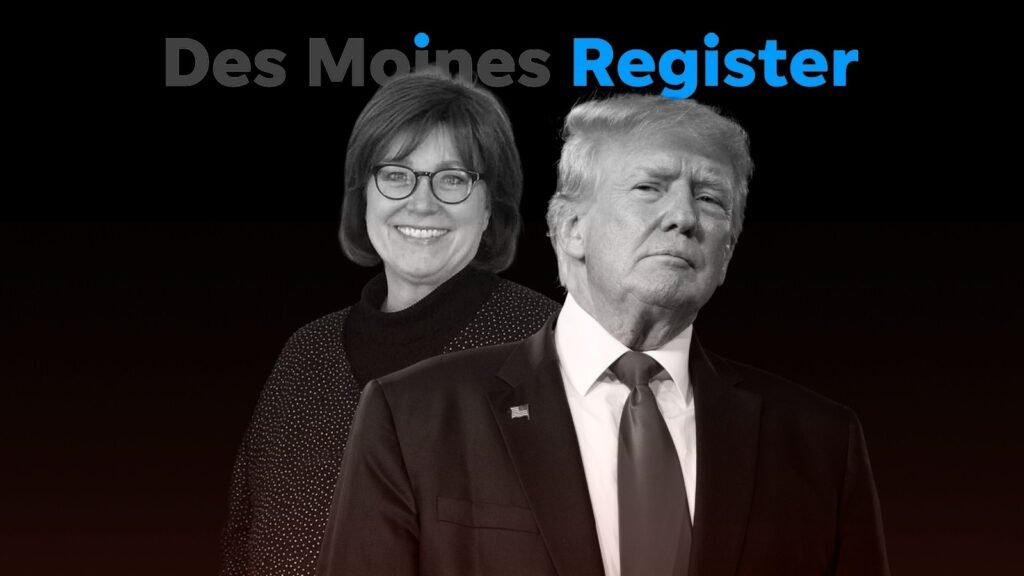Donald Trump has filed a lawsuit against the Des Moines Register and pollster J. Ann Selzer, claiming they engaged in “consumer fraud” and “election interference” through a poll published on November 2, 2024. The poll suggested Kamala Harris was leading Trump by three points in Iowa—a result Trump says was intentionally misleading. Despite the poll, Trump won Iowa by 13 points and the election overall.
Filed in Polk County, Iowa, the lawsuit accuses Selzer and the newspaper of deliberately manipulating data. Trump stated that Selzer, a historically accurate pollster, “knew exactly what she was doing” and called the poll a calculated attempt to influence voter sentiment against him. The lawsuit seeks unspecified damages and a court order to prevent future “deceptive” polling practices.
The lawsuit also names Gannett, the parent company of the Des Moines Register, which has dismissed the claims, asserting the poll was conducted professionally and transparently. A Gannett spokesperson labeled the lawsuit “without merit.”
J. Ann Selzer recently announced her retirement from political polling, though Trump has implied her departure followed the controversy surrounding the poll. During a press conference preceding the filing, Trump said, “This was fraud and election interference… She’s always been accurate, but this time it became a global story because it was wrong.”
This legal action is the latest in a series of media lawsuits brought by Trump. Last week, ABC News settled a defamation case with Trump for $15 million over statements made during its This Week program. In October, Trump sued CBS News over claims of deceptive editing, and he has also pursued legal action against journalist Bob Woodward and publisher Simon & Schuster for using interview recordings in their reporting.
As Trump prepares to assume the presidency in 2025, these lawsuits underscore his ongoing battle with major media outlets, which he frequently accuses of bias and misinformation. Gannett and Selzer are expected to defend the integrity of their polling methods as the legal process unfolds.


